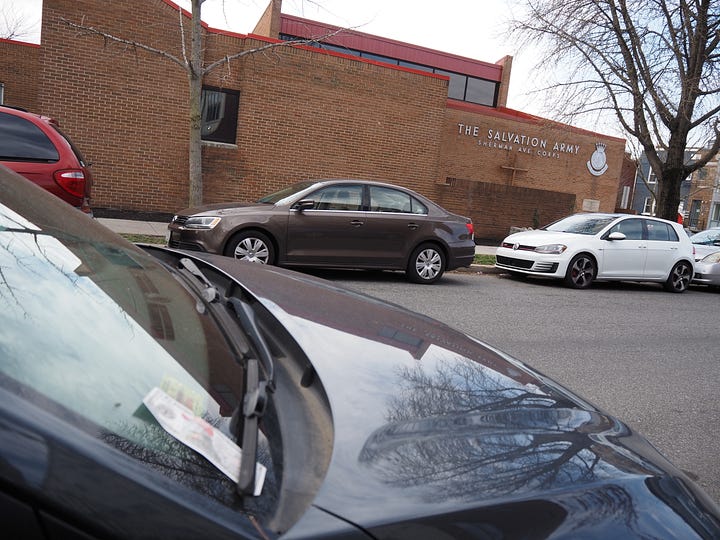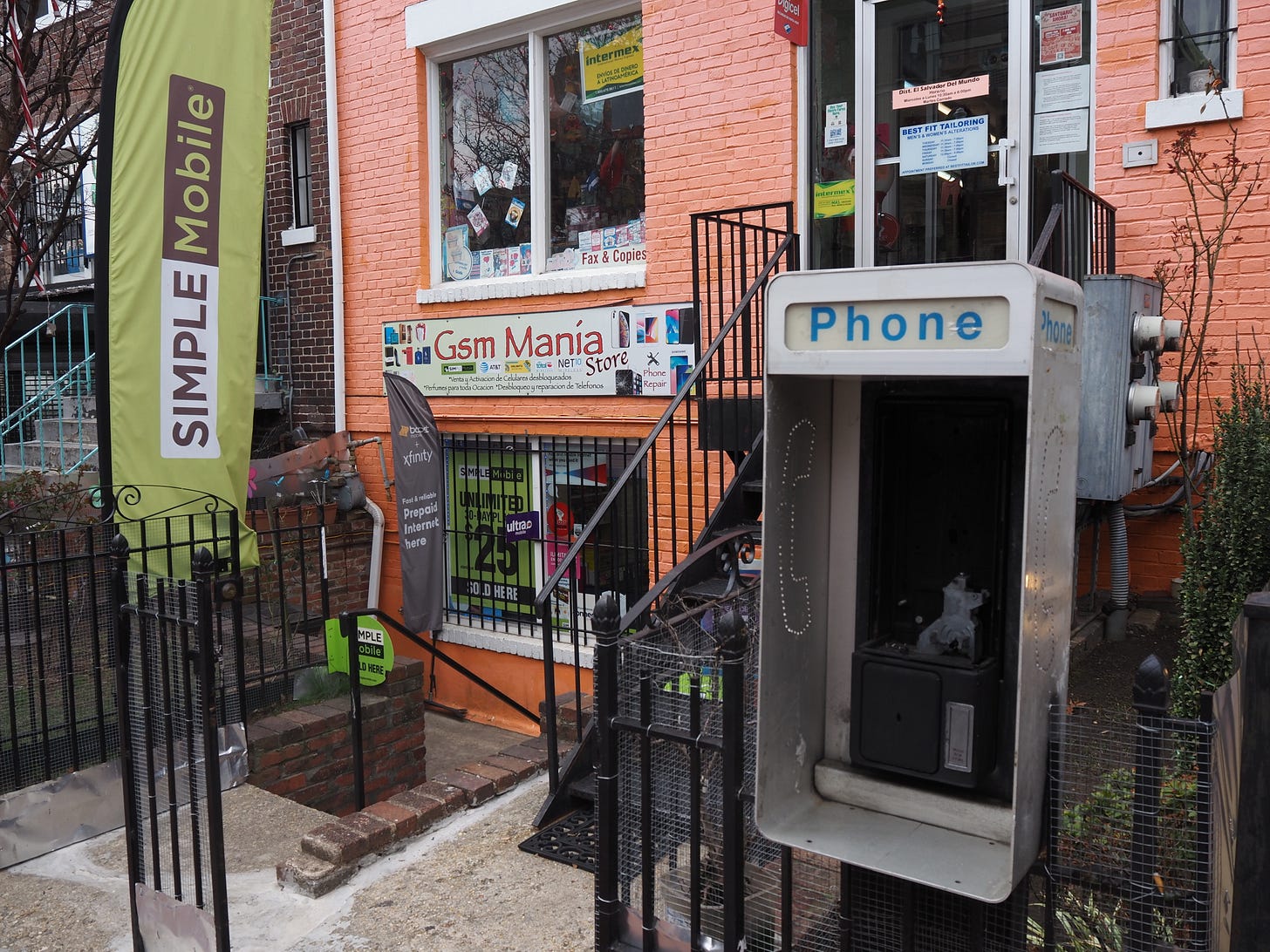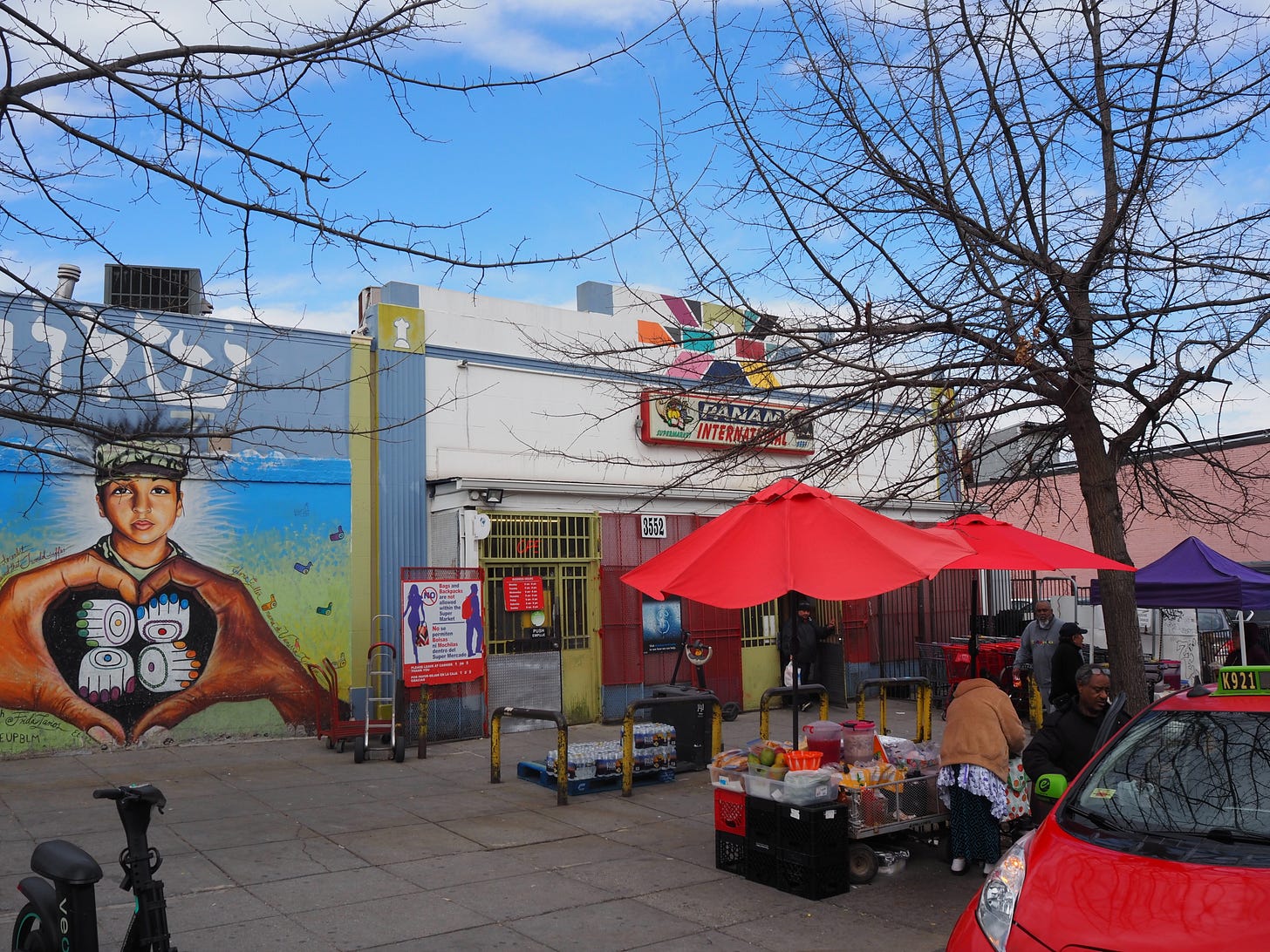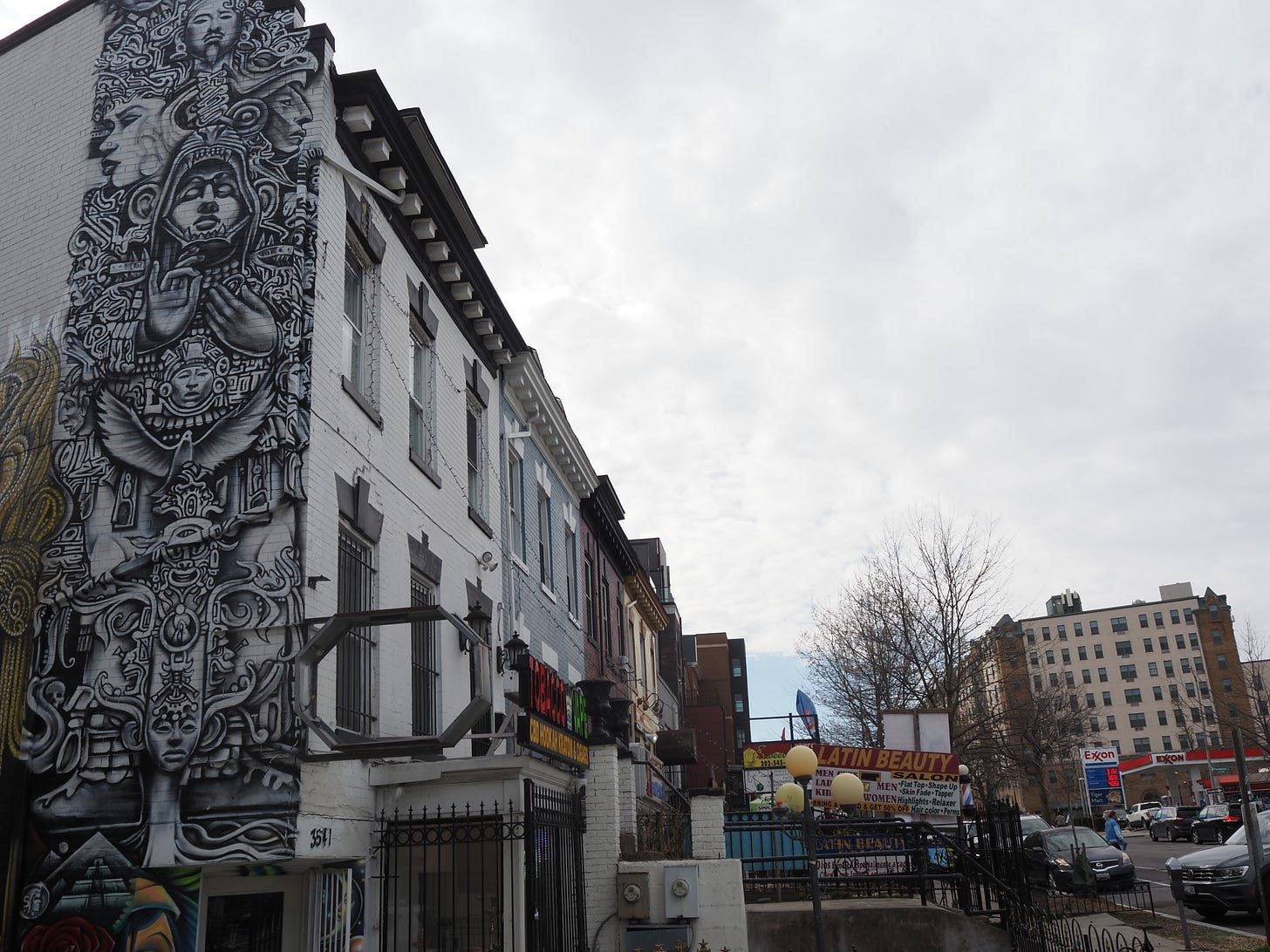Pout With Lipstick Red
A walk near 14th St.
Washington, D.C. — It’s a likely place for cars to crash. There’s no stop sign on Sherman and the one on Lamont is treated as more of a suggestion. What’s more, the house on the corner invites smash-ups.
A gonzo box of corrugated steel and burnt orange accents, it’s long been the butt of D.C. blog snark: “I hope whoever's turn is next doesn't remove that center block.” To the house’s right, row homes with the muted grey face lifts of gentrification pout with lipstick red doors. The ever-rarer mottled brown brick of the original builds begins to look like an affectation.
I’m not surprised to see the crash. It seems right to me that cars collide there. Not that I wish bad things on drivers, or the neighborhood. No, that would be to misunderstand what I mean. The neighborhood is headed different ways. Whether that’s good or bad is neither here nor there. A car crash is but a physical manifestation of the slower moving clash taking place along the 14th Street corridor. Poor policy, individual desire, blindness, rush, an ex post facto justice — it’s all come to a literal head on the corner of Sherman and Lamont this morning.
Let me illustrate my point with another anecdote. Later on, I walk by a mobile phone and internet business aimed at the neighborhood’s long-time Latin American community, the GSM Manía Store. Out front, there is a torn-out payphone. How could there not be?
Perhaps these are the projections of my own fatigued psyche. I stroll on unable to shake the sense that the tear is widening.
As I’m passing the Salvation Army, I find anti-abortion activists have slipped pamphlets disguised as dollars underneath the passenger side wipers of all the cars along the block. The fake bills have the hallmark syncretism of true believers: a schizoid hodgepodge of allusions, numerology, Great Man and falling Nation, executed with the precision of more stable minds. The bills warn of an American Abortion Holocaust. They reference Levicitus 20: 1-5, in which the Lord commanded Moses to tell the Israelites that child sacrifice to Molech shall be punished through death by stoning. They claim post-Roe America has forgotten this lesson: “53 years of federally sanctioned child sacrifice.”
Donald Trump’s portrait dominates the bill. Though, unusually, his back is turned to the beholder and his gaze is focused on a point somewhere off far to the left. He wears a MAGA hat with an American flag stitched upside down. A lizard climbs his shoulder. I do not know its significance, though it may have to do with the “detrans” movement. Is his odd positioning meant to indicate literal RETVRN? I do not know. The bills are greyscale but for the muted red of the MAGA hat and the lizard. The neighborhood seems to have a uniform color scale for conflict.




Just as my pessimism threatens to overwhelm, I arrive outside the Panama International. Women sells mangos and refreshments under bright red umbrellas. To the grocery stores left, a mural flashes the same syncretism as the fake bills. But the menace of holocausts, child sacrifices, reptiles, and a leader who has turned his back on the people is here replaced with notes of hope.
The Hebrew word Shalom, for peace, dominates the top of the mural. In the center, Vanessa Guillén’s beatific portrait gazes out. She wears her Army uniform and is squared to the passerby. Below, two hands make a heart around multi-colored feet, perhaps Buddhapada. A quote from Guillén’s mother runs along the hands: “I cried a lot because I didn’t want her to enlist. Because in my mother’s heart, I already feared that I would suffer.” Two young Hispanic boys, perhaps thirteen, glide by on a single scooter. The boy behind wraps his arms around the boy steering, clasping a gigantic tin pot to his chest. In death, Guillén protects them as they giggle over the electric whine. Later on down the road, a mural of meso-American symbols features an Aztec cuāuhocēlōtl making a mudra, a hand signal popular in Buddhist and Hindu art.
These symbols, too, are confused. Yet they comfort. They acknowledge death, yes, and they invoke the ancient commandments we fail to abide by, but, in doing so head-on they connote an openness and possibility absent the fear mongering of the Trump pamphlets. Guillén faces the society that failed her. The Aztec wishes peace on the ancestors of his offspring and opposition alike.
Still confused I make for home. I’d not talked to anyone, too lost in my own thoughts. The sound of guitar draws me to Mount Pleasant. Past the farmers’ market and down the hill a small crowd of new parents and young children have gathered for a little concert. It’s the “6 ft. Aparty.” A mash-up of D.C.’s classic front porch sessions and COVID rules, the biweekly music sesh is the brainchild of Frank Agbro. As I make for home, I hear him pick up the guitar. Frank starts signing a song I can’t play but reminds me of Guru’s No Time to Play. I don’t turn back but I can hear the little children boogieing as Frank sings, “Never no time to play/ Gotta keep workin every day/ Never no time to play/ Gotta make moves with no delay…”







What a vibrant neighborhood! Such a rich description. 🙏